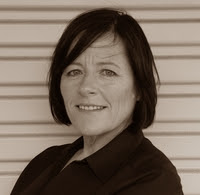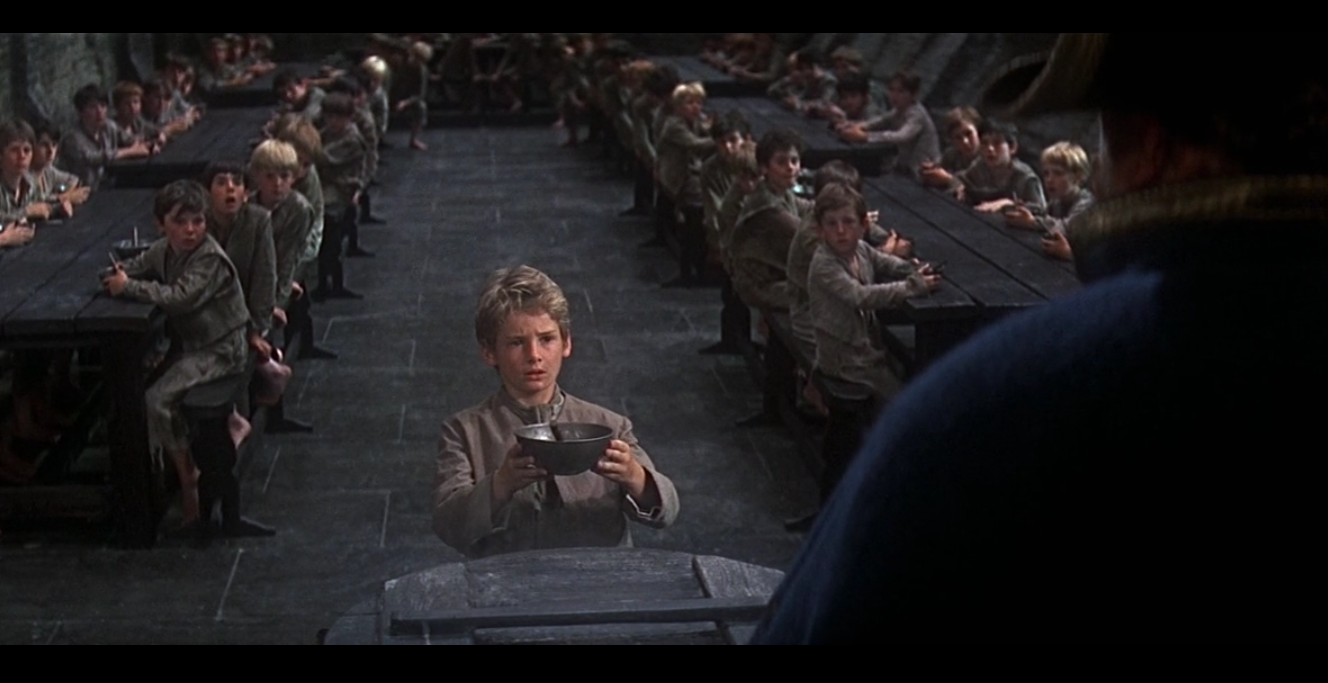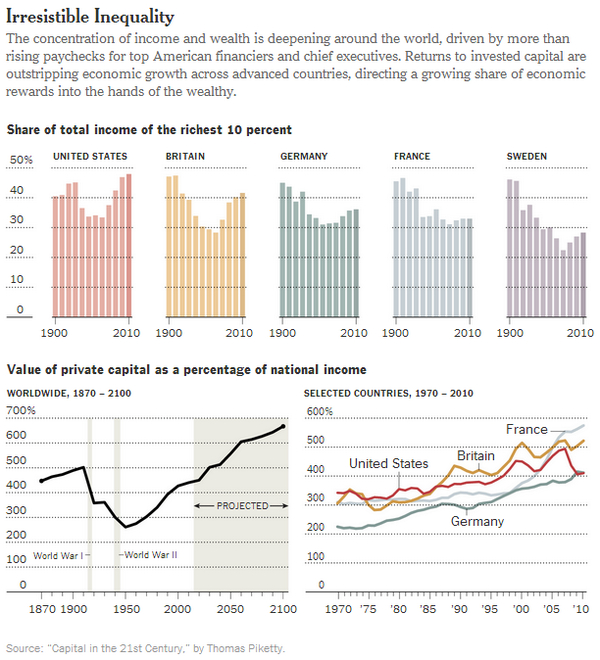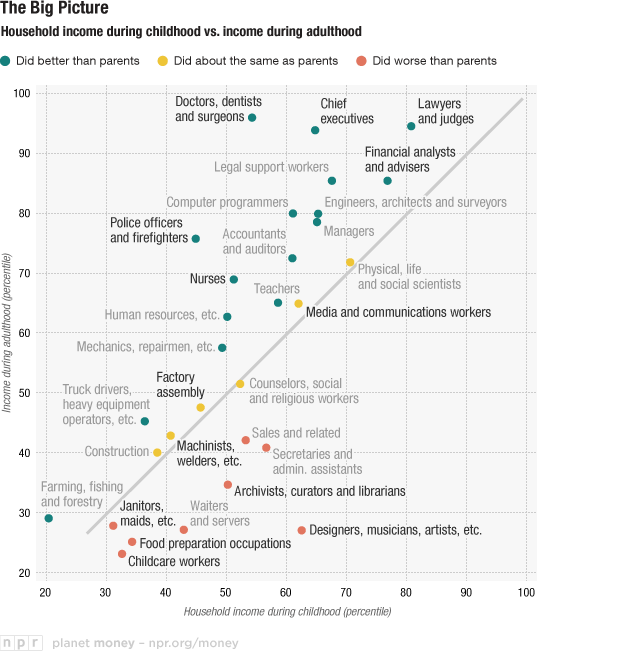It’s the perfect storm for the struggling writer: average author income is collapsing, social mobility is in decline across nearly all wealthy countries, and inequality is on the rise. These structural changes are leading to an inescapable reality: it is becoming harder and harder for poor, working class, and even the lower end of the middle class to break into writing. It is the great, unspoken threat to diversity and fairness in publishing.
(click on the PDF icon, above right, if you prefer a black lettering on a white background).
A recent survey released by the Authors’ Licensing and Collecting Society (ALCS) in the UK, entitled: ‘What are words worth now?’ provides compelling evidence on the decline of the economic wellbeing of the average writer.
It’s a depressing read: in the UK in 2005, 40% of authors earned their income solely from writing; by 2013 this had fallen to 11.5%. Between 2005 and 2013 there was a drop in income from professional authors, in real terms, of 29%. The median income of professional authors in the UK is now below that of the poverty line.
While e-books have been hailed as the new publishing frontier, a place for authors to recoup declining income, it has failed to make up for the dramatic falls in earnings overall for writers.
The ALCS report argues: “if unchecked, this rapid decline in the number of full-time writers could have serious implications for the breadth and quality of content that drives the economic success of our creative industries in the UK.”

This is not only true of the UK, but also for Australia, the US, and others. Social mobility has declined in the US since the late 1970s, and is now about equal with the UK (so much for the American Dream). Australia has far greater social mobility than both these countries, though is currently headed by a government that seems determined to bring about US-levels of inequality.
These economic realities are a huge challenge to both fairness and diversity for authors. Yet, while the debate on diversity and representation rages in the genre – in particularly in the US – almost no one is discussing the how economics of being an author silences the working class.
This aspect of diversity should be self-evident. In the US, for example, the working class and working poor make up 55% of the population. That’s a silent, almost invisible majority when it comes to genre fiction or indeed, the debate around diversity in the genre. This is bizarre when one considers that women are over-represented in the poor and working class, and people of colour and people living with a disability are significantly over-represented.
This is not to criticise authors simply for being from middle-class or upper-middle class families. It’s hardly fair to assume they will take up the cudgels of class warfare on behalf of those who aren’t getting a foot in publishing’s door.
However, it is both reasonable and worrying to note that those from backgrounds of financial and educational wealth have depressingly little to say on the question of class. The debate, most particularly in the US, fails spectacularly to discuss the issue of economic and educational privilege that rests on one’s social class. Sadly, classism is the one form of prejudice that is still normatively acceptable.
The looming, inescapable question for diversity in writing is this: in the future, who can afford to be an author?
Thomas Piketty, in his best seller: Capital in the 21st Century, shows that levels of inequality are approaching that of over a hundred years ago in the US and parts of Europe. Vast amounts of wealth are accumulating to the one percent, the middle class is shrinking, and the plight of the working class and poor is becoming ever more entrenched.
The implications of this growing inequity for the writing industry are this: in the future, you will need to either a have a wealthy patron, or already be wealthy if you wish to become a writer. Indeed, this is not merely a question for the future; it is the grim reality facing working class and poor writers now.
As author and publisher Kevin Duffy argues, in an article on literary fiction:
“Literary fiction is the record of the middle classes by the middle classes. Sometimes working-class characters exist, but they are there in the main to be ciphers or consequences.”
“…millions of readers are unable to read about their experiences because those who commission and market new writing feel uncomfortable with something they know so little about.”
In my view these arguments can be applied to the speculative genre, increasingly marked by its gentrification and middle-class concerns.
This observation by Duffy is backed up by the facts. In America today, for example, one’s ability to become an artist (including a writer) strongly correlates to the wealth of one’s parents (see graph, below). Statistically, artists will on average have wealthier parents than doctors. Think about that for a minute, think about the embodied privilege required to even become an artist. Writing is becoming an occupation only for the children of the wealthy.
George R. R. Martin was born into a working class family in Bayonne, New Jersey, in 1948. He made his breaks as a writer in the 70s, penning award-winning short stories and selling his first novel, The Dying of the Light, in 1977.
In the decades since GRRM published that first novel, funding for public libraries has been gutted in the US and a university education has become more expensive. There has also been an increase in ‘permanent inequality’: where the advantaged are permanently better off, and many of the disadvantaged permanently worse-off.
All this adds up to bad news for a working class Gen-X or Gen-Y writers with the potential of George RR Martin. Especially when novel advances have decreased over the years and short story payments have become pocket money.
In today’s world, would GRRM be able to become a professional writer? Given his prodigious talent, it is still likely, though he would struggle with a lower income generally from his writing.

After the failure of his 1983 novel, Armageddon Rag, Martin went to Hollywood and became a screenwriter. He only left LA, thirteen years later, when he tired of the industry and decided he wanted to write a series of novels so grand they could – in his own words – never be filmed.
With the dire state of the industry today, would he still attempt Games of Thrones? Would he really give up a fat, steady paycheque working on Fringe or Sleepy Hollow in order to write a financially dubious epic series of novels?

This leads us to the question of George R. R. Martin’s sister. In Virginia Woolf’s classic feminist essay ‘A Room of One’s Own,’ Woolf invents a woman called Judith Shakespeare. In essence, while Judith possessed all the talents of her brother William, because she was a woman she couldn’t got to school, and because she had no education her talents went to waste, unexpressed.
In this vein we will take GRRM’s imaginary sister, Georgia – a woman, we will assume, with all the talent of her brother. The answer to the question of whether Georgia would have made it as a writer in today’s economic climate is simple: she very likely wouldn’t. Women in the US have a higher risk of being downwardly mobile and working class women find it harder than men to escape their social class (and it is bloody hard for men).
Imagine Georgia working long hours in the service industry for minimum wage – a wage that has declined in real terms over the past twenty years – coming home exhausted, barely able to cover the cost of food and rent. No spare money, no spare time, a university education beyond reach, and not even a public library nearby. The itch to write never scratched between six-day working weeks, raising children, and the moment head touches pillow.

Australia, thankfully, retains a healthy tradition of genre writers from underprivileged economic circumstances. I was recently at a writer’s convention that had a panel of best-selling writers – Isobel Carmody, Kerri Arthur, and Russell Kirkpatrick – all from working class backgrounds. A situation that would never be replicated in the US.
Ask yourself this question: can you name three young US female speculative fiction writers from working poor or working class backgrounds? Can you name three of any gender?
For American writers around the age of around forty or younger, the names Nick Mamatas and Saladin Ahmed come to mind quickly, though not many after that. In my research I struggled to find a single younger female American writer from a working-class or poor background (Edit: some commented on the article, below).
Modern inequality, social immobility and an inability to talk about class means that at least half of the population are close to being locked out of the profession. They are the silent majority, a rare and disappearing breed, and their stories are not being told. While this endures, the breadth and perspectives of the fiction coming out of the genre will be diminished.
(Edit: I wrote this article in 2014. Noticing it still gets a lot of hits, I re-read it recently (Jan 2022), and can say I still stand by it. The question about working class female writers in the US was a provocation. It was to encourage readers to think about them. Eight years after I wrote it, the trends I outlined have worsened: inequality continues to rise, and poor and working class writers struggle more than ever to find a place in this profession).
T R Napper on twitter: @TheEscherMan



I’m a US speculative fiction writer, a woman, and under 40. I grew up on a farm. I make a full time living from my books. We do exist!
Pleased to hear it. We need more woman (and men) like you from underprivileged backgrounds in the genre.
Ha! Annie, you were the only person I could think of when Tim asked the question.
Great piece, btw. Still chewing on it.
Cheers Moses.
I’m an American writer of literary horror fiction, just a smidgen over 40, a Shirley Jackson Award finalist and grew up working class.
My generation was the first to go to college. Dad worked three jobs at one point (including one as a janitor). Members of my family have been on public assistance.
There, I think that qualifies me. 🙂
I think one of the reasons you may not have heard of any of us is that growing up working class is still a bit of a taboo subject in mixed company. I can’t speak for anyone else, but I’ve never wanted to put a buzzkill on anyone else’s day by pointing out that they grew up with more money/leisure time/ opportunities than I did.
I agree with much of what’s said in this blog. Genre (especially SF & F) IS gentrified. But I’m not sure there’s anything concrete that can be done. The working class writer will simply have to find a way. That may sound harsh, but I don’t think it is. We’ve *always* had to find a way. Stop watching TV, get up early, stay up late, just get 250 words a day in if you can. The “genre is gentrified” observation is spot-on, but I wouldn’t want anyone to read this and lose hope and say “why bother?”. Yanno?
Thanks Nicole. I’ve often been reluctant to discuss my class background, as well (though I guess I’ve nullified that by writing this article)
I don’t want anyone to lose hope, either. People like yourself, who have struggled through, should be proud of their achievements.
My key concern is that this is a huge issue for diversity, and no-one is discussing it. Raising awareness of the problem is the first step, I think.